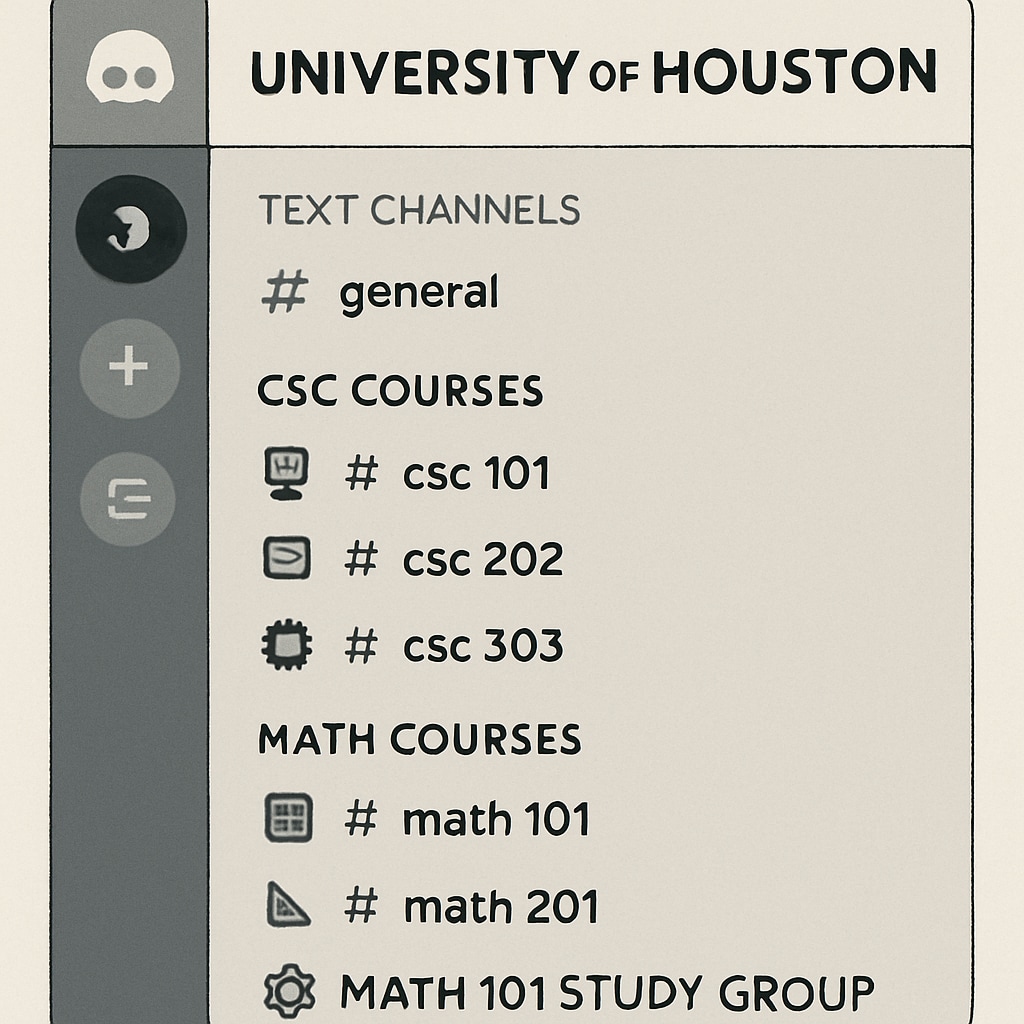At the University of Houston, learning groups and digital communities like Discord have become essential tools for academic success. These resources offer students a supportive environment to collaborate, share insights, and tackle challenging coursework. Whether you’re a freshman or a graduate student, understanding how to find and engage with these communities can make a significant difference in your educational journey.
Why Learning Communities Matter at the University of Houston
Learning communities have always played a pivotal role in higher education. At the University of Houston, they provide students with a platform to connect, overcome academic challenges, and excel in their courses. For example, traditional study groups encourage group discussions, problem-solving, and peer learning, which are proven to enhance academic performance.
Additionally, digital platforms like Discord have revolutionized the concept of learning communities. Students can now collaborate in real-time, share resources, and organize virtual study sessions from the comfort of their homes. This flexibility is particularly beneficial for students juggling work, internships, or other commitments alongside their studies.

Finding Learning Groups and Discord Communities at the University of Houston
Joining a learning community at the University of Houston is easier than you might think. Here are some practical steps to get started:
- Check with your professors: Many faculty members recommend or manage study groups for their courses. Ask during office hours or check your syllabus for details.
- Visit campus resource centers: The university’s academic support centers often organize group study sessions or can direct you to existing communities.
- Explore Discord servers: Many student organizations and study groups use Discord to stay connected. Check with your department or student clubs for server links.
- Search social media: Platforms like Facebook or Instagram often feature university-specific pages and groups where students organize study sessions.
If you’re new to Discord, it’s worth noting that the platform allows you to join channels dedicated to specific topics or courses. This structured approach makes it easier to access tailored resources, ask questions, and participate in discussions relevant to your academic needs. For a deeper understanding of Discord’s functionality, you can visit Discord on Wikipedia.

Maximizing the Benefits of Learning Communities
To make the most of these resources, actively participate and contribute to your learning community. Here are some tips:
- Engage regularly: Dedicate time each week to attend group meetings or participate in online discussions.
- Share resources: Contribute notes, study guides, or useful links to foster a collaborative environment.
- Ask for feedback: Use the group to clarify doubts or receive constructive criticism on assignments.
- Respect others: Maintain a supportive and inclusive atmosphere by valuing diverse perspectives.
Learning communities are not just about academic growth; they also help students build lasting friendships and networking opportunities. By engaging with peers, students can develop teamwork skills, improve communication, and gain insights from diverse viewpoints. For more on the importance of collaborative learning, check out Collaborative Learning on Britannica.
The Future of Learning Communities at UH
As technology continues to evolve, learning communities at the University of Houston are likely to become even more dynamic. Platforms like Discord and other emerging tools will offer innovative ways to connect and collaborate. This shift underscores the importance of adaptability and staying informed about new academic resources.
Whether you prefer traditional study groups or digital interactions, the key is to find a community that aligns with your learning style and goals. With the right support, you can navigate the challenges of university life and achieve academic success.
In conclusion, learning groups at the University of Houston, both traditional and digital, are invaluable resources for students. By leveraging these tools, you can enhance your educational experience and build connections that last a lifetime.


